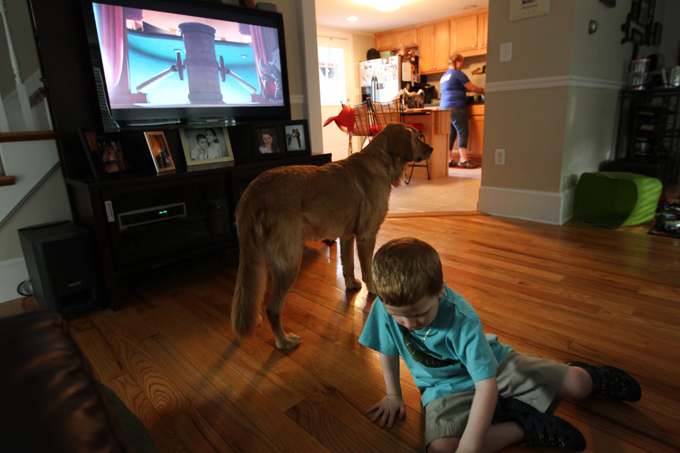It’s a given that having parents serve in the military and be away for long periods of time is hard on children. A Tufts University study reveals that children with strong attachments to animals cope better than those who don’t have a family pet. The report in Science Daily supports the belief that “along with other key resources, strong attachments to animals may help military-connected children develop resiliency and other positive developmental traits.”
“We were interested in seeing if the specific stressors faced by military-connected families could be mitigated by interacting with animals,” says Megan Mueller, Ph.D., a developmental psychologist and research assistant professor at Cummings School of Veterinary Medicine at Tufts University. “We found that kids with deployed parents who had developed a deep bond with a family pet reported having better coping strategies in dealing with the stress than those without such ties to a companion animal.”

Close to 300 children in grades 6 through 12 with parents in the military took the survey study. About 70 percent of the youth surveyed had family pets and most of them had some involvement in taking care of those pets. Some of the children reported they fed, played with, and (if applicable) walked their pets.
The study also found that children who bonded with their pets were confident and caring, and that children with at least one deployed family member had higher levels of stress than those with parents who were home.
“It isn’t enough to be around animals,” Mueller says, “Children need to be engaged in that relationship. Strong attachments to pets may foster a more proactive attitude about handling stressful problems and could serve as a bridge to developing and maintaining peer relationships during stressful circumstances.”
Sources: Science Daily, Tufts University, Applied Developmental Science









